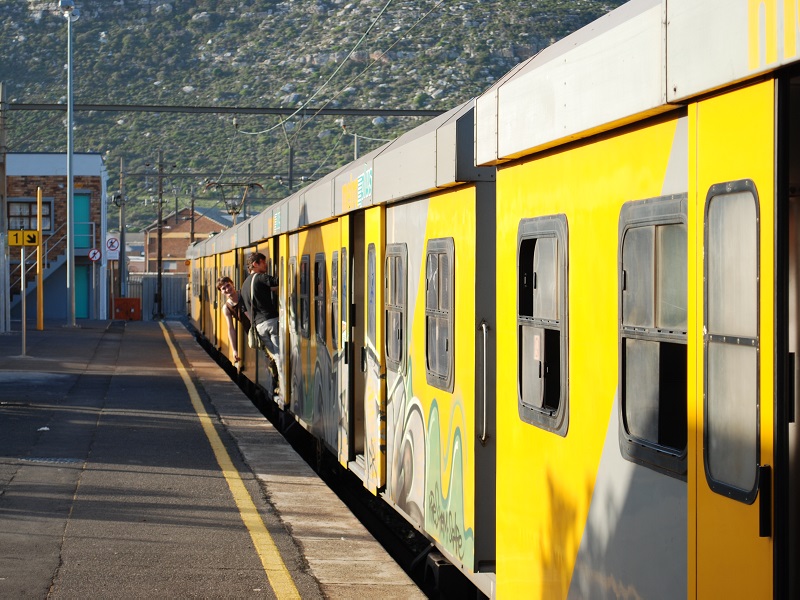There are almost 8,000 people who have made homes for themselves in and around the railway lines on Cape Town’s central line. This has made it more difficult to get the route, which has not been functional since 2019, back up and running, News24 reports.
On Tuesday, Metrorail Western Cape manager Richard Walker told the Western Cape legislature’s Standing Committee on Transport and Public Works that 7 844 dwellings have been built on its land in the Langa, Nonqubela and Philippi areas, which has hindered the ability to restore the operation.
According to News24, it would require 55.9 hectares to relocate the people who have built their homes on the track. However, GOOD’s Brett Herron mentioned that 55 hectares of land was not that extensive considering the amount of land the various spheres of government held.
Chair of the Prasa board, Leonard Ramatlakane, said that the “situation got worse” during lockdown Level 3 and added that “Prasa only has a mandate to run trains. We can’t allocate land – we don’t have land.”
Those living on the Prasa land have, however, shown willingness to move, but they had asked for an alternative, which the state-owned enterprise said it could not commit to, News24 adds.
Even though there have been hopes of seeking an alternative plot of land along with the support of local and provincial government, Ramatlakane said that this “swopping” of land was a lengthy process.
On the other hand, Herron argued that the central line was the busiest rail line in the country at one stage, saying it “can’t be regarded as acceptable” that it’s been non-functioning for the past two years.
“Cape Town’s central line, servicing Mitchells Plain, Khayelitsha and at least 20 other communities on its route to Cape Town Central Station, was arguably South Africa’s most important rail commuter line. It is the lifeblood of the city,” he said.
“Its collapse is compounded by the collapse of the MyCiTi N2 Express bus service to Mitchells Plain and Khayelitsha. This service was providing over 200 000 passenger trips a month, but has not operated since June 2019 due to the City of Cape Town’s inability to resolve an impasse with the service operators.”
Picture: Supplied

